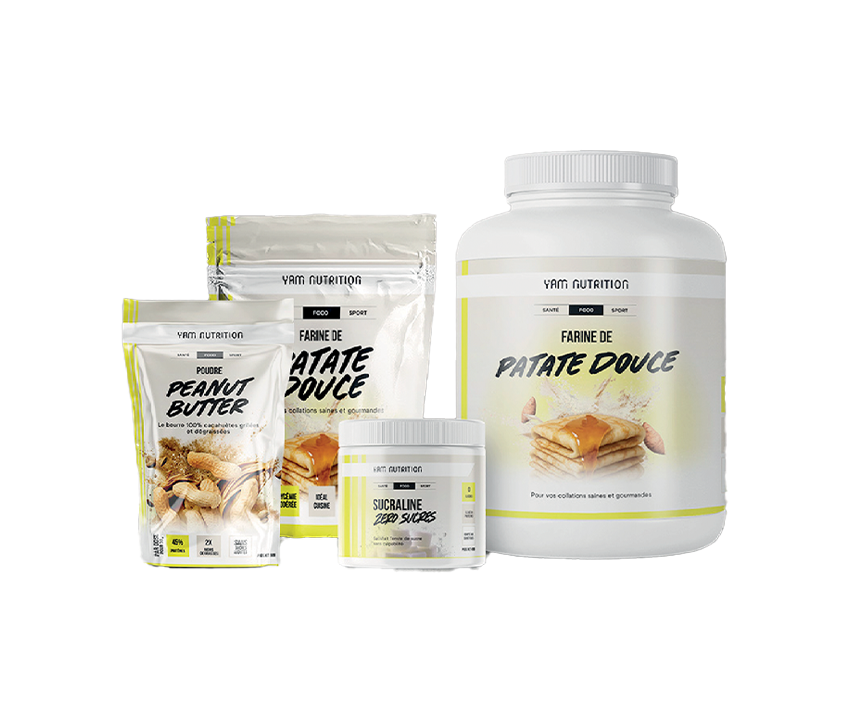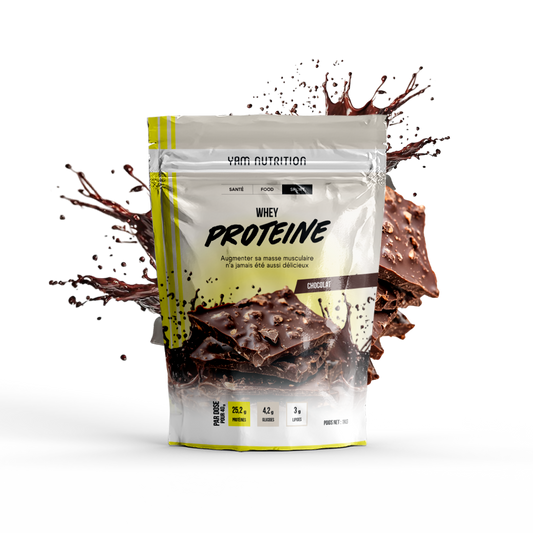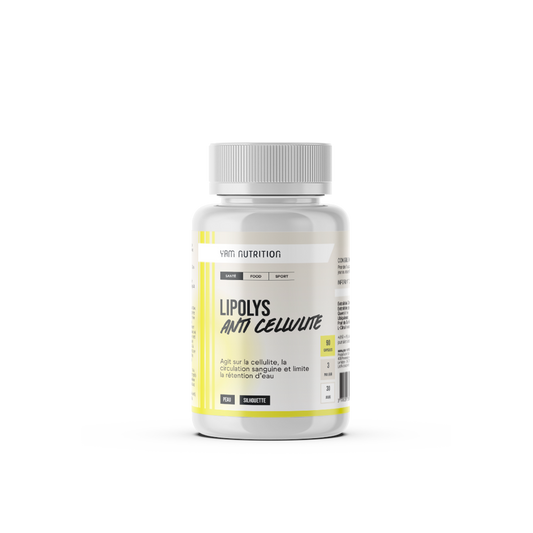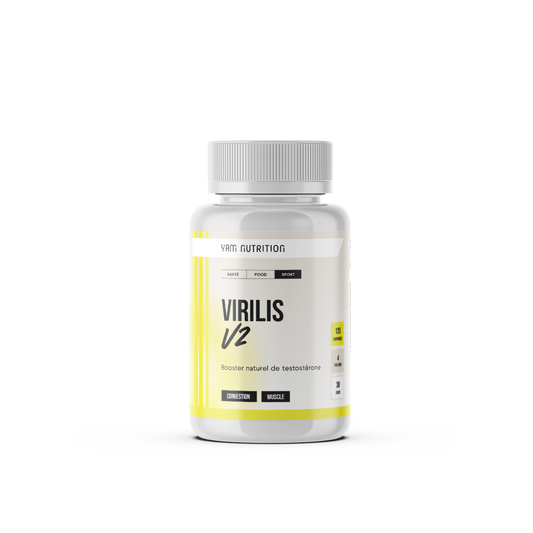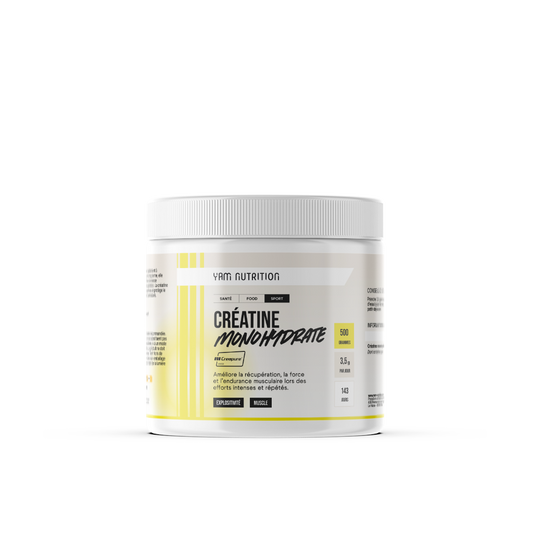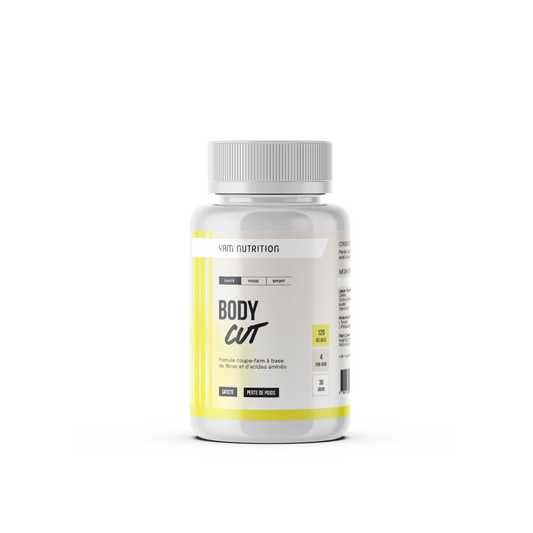What are the differences between energy drinks and energy drinks?

Sommaire
- Sports energy drinks provide energy during exercise
- Isotonic drinks provide rapidly assimilated sugars
- Energy drinks contain stimulants like caffeine
- Is it necessary to consume simple sugars during exercise?
- Energy drinks sometimes contain too much sugar
- Who are energy drinks for?
- Energy drinks in the context of endurance sports
- Energy drinks for bodybuilding and strength sports
- Pre-workouts are quite specific to bodybuilding and other strength sports…
- Excessive consumption of caffeinated beverages leads to unpleasant side effects
- Energy drinks effectively stimulate the body when drunk in moderation.
Most athletes or sedentary people tend to confuse the drinks energy drinks. In fact, these are two types of drinks that share similarities and differences. Let's say that athletes will tend to drink an energy drink while others will prefer the energizing version. That said, bodybuilding athletes also drink energy drinks. But then, what are the criteria for these differences?
-
Whey Protein
Building muscle mass has never been so deliciousRegular price From 37,90 €Regular priceUnit price / perBuilding muscle mass has never been so delicious
-
Virilis V2
The natural testosterone boosterRegular price 29,90 €Regular priceUnit price / per29,90 €Sale price 29,90 €The natural testosterone booster
-
Creatine Monohydrate Creapure®
Improves strength, power and muscular endurance during intense and repeated effortsRegular price From 34,90 €Regular priceUnit price / perImproves strength, power and muscular endurance during intense and repeated efforts
Energy drinks for athletes provide energy during exercise
When you exercise, you inevitably use glucose to make ATP and release energy . Even if you're not doing anything in particular, you're still using glucose because your cells can't do without energy. This famous molecule is stored in your muscles and liver in the form of glycogen, chains of glucose linked to each other. However, these reserves are not eternal. On the contrary, they quickly run out when your sports training are intense. In this case, why not fuel your body with quickly assimilated carbohydrates? Energy drinks actually contain simple sugars (dextrose, maltodextrin, etc.) designed to supply your muscles with energy during exercise.
Isotonic drinks provide rapidly assimilated sugars
Isotonic drinks provide you with simple carbohydrates like dextrose, maltodextrin, fructose, or other forms of rapidly absorbed sugars. These added sugars are suitable for physical activity because they are isotonic, meaning they pass quickly through the intestines to hydrate you without disrupting the body's fluid balance. Naturally, sugars actively participate in the synthesis of immediate muscle energy. Thus, an energy drink supports you during exercise, especially when it is sustained. However, this type of carbohydrate drink can also be used for bodybuilding when exercise intensity is high. In addition, their mineral, electrolyte and vitamin content also contributes to maintaining athletic performance.
However, try to factor their sugar and calorie content into your daily calorie intake. If you're not training at high intensity or for a long period of time, these may not be necessary. Again, it all depends on your energy needs. If your diet is properly tailored to your athletic activity, it's likely that consuming simple sugars during exercise won't help your athletic performance.
Energy drinks contain stimulants like caffeine
Unlike energy drinks, energy drinks contain caffeine or other stimulants. They therefore do not necessarily provide carbohydrates or sugar. The orientation of these drinks is therefore to focus on stimulating the nervous system and energy metabolism. Thus, they contain stimulants but also nutrients related to energy release such as B vitamins (thiamine, riboflavin, niacin, pyridoxine, cobalamin, etc.) or minerals (potassium, magnesium, manganese, etc.). Amino acids such as tyrosine (precursor of catecholamines such as adrenaline, etc.), taurine, arginine or citrulline are also found in these drinks. In addition, the presence of plant extracts is not excluded given their role in energy. These can be guarana ( high caffeine content ), maca, green tea or other plants...
Is it necessary to consume simple sugars during exercise?
When it comes to sports performance, should we therefore believe that you should consume calories in the form of simple sugars before or during exercise? Let's just say that some official organizations would have you believe this in a somewhat simplistic way. They mention the nutritional benefits a little too easily without further ado. However, they forget that the nutrition of athletes does not depend on the quarter of an hour preceding exercise or even the duration of a workout, but that it extends over 24 hours or even 3 to 5 days when it comes to post-exercise recovery. Sports nutrition issues are therefore more complex than they seem. Let's add that water also has no significant nutritional benefit since it does not provide any calories, but it is critically important in terms of hydration.
Energy drinks sometimes contain too much sugar
Similarly, a high intake of simple sugars, during or outside of exercise, does not represent a particularly relevant nutritional interest in terms of long-term health for athletes. Let us therefore be wary of the hasty considerations and reductive clichés of certain nutritionists. In summary, if you need calories, take an energy drink, but conversely, an energy drink will be just as relevant, especially if it is a question of avoiding the intake of simple sugars that you do not need. This assumes that you know your body well enough to know whether calories and nutrients will be necessary for you during the practice of your exercises or not…
Who are energy drinks for?
As we were discussing, energy drinks are rich in simple sugars. They are therefore primarily aimed at athletes. They were developed for this purpose decades ago to quickly provide energy to working muscles. Sedentary people therefore have no interest in consuming them. Logically, they don't consume them, unless they want to load up on unnecessary calories. Generally, non-athletes spontaneously turn to energy drinks since they contain caffeine or other stimulants . These may be students, businessmen or entrepreneurs who work a lot and want to overcome temporary fatigue. This consumption will most often be recreational or festive...
Energy drinks in the context of endurance sports
As for energy drinks, athletes also consume them depending on the context of their sport. If it is an endurance sport, the stimulants they contain will help you to reduce fatigue. Caffeine is also known and scientifically proven for its improving influence on physical endurance, motivation and concentration. In the body, caffeine leads to increased use of fats, allowing you to save your muscle and liver carbohydrate reserves. Be careful, however, not to abuse it because from a certain quantity, the caffeine is considered a doping substance according to national and international regulations. This is especially the case if you systematically take it before each competition. That being said, athletes and sedentary people alike benefit from energy drinks to fight fatigue or simply to enjoy them in the evening (partying in bars, nightclubs, etc.), in the morning or in the afternoon.
Energy drinks for bodybuilding and strength sports
For bodybuilding and strength sports, the question of pre-workout or energy drink to take before training arises naturally. The presence of creatine, amino acids such as arginine or citrulline are added to pre-workouts specifically to boost muscle pump and strength. Again, it all depends on the context and what you're looking for in terms of athletic performance. If you're looking to gain muscle mass, a pre-workout might be a better choice, but you could also use an energy drink on other occasions.
Pre-workouts are quite specific to bodybuilding and other strength sports…
So, pre-workouts provide you with the nutrients you need to increase strength when gaining mass or muscle. On the other hand, an energy drink is more convenient to take than a workout booster since it doesn't require any preparation. To this end, you can simply put one in your gym bag in the summer if you're cutting or looking to optimize energy to gain muscle while intensifying your workouts. This is also a good solution if you take creatine monohydrate apart from your pre-workout drink. To this end, scientific research shows that taking creatine with glucose (a sweet fruit juice), alpha lipoic acid (an insulin-mimicking antioxidant), or sodium bicarbonate and water would facilitate its assimilation. All you would have to do is drink your energy drink 15 to 20 minutes before your workout...
Excessive consumption of caffeinated beverages leads to unpleasant side effects
Naturally, excessive consumption can be harmful to your health, whether you are sedentary or athletic. Athletes tend to say that they tolerate caffeine better since they consume it very regularly. However, the negative effects of excess caffeine are just as harmful as for sedentary people who consume it less frequently. As you know, too much caffeine causes anxiety, tachycardia (a fast heart rate), and nervousness. However, nothing is simpler than staying reasonable and aware of your caffeine tolerance. To do this, simply estimate your daily intake by stimulants . If they exceed 400 to 500 mg/day over a day, this amount can already be considered high. On the other hand, moderate caffeine consumption does not cause adverse health effects.
Energy drinks effectively stimulate the body when drunk in moderation.
Without going overboard, an energy drink can always be consumed before exercise or other stimulating physical or cognitive activities. In this case, they will give you the energy, focus, and motivation you need, whatever the activity you are doing. Also, remember to stay hydrated. during exercise or your activities, it's important for your health. To this end, Energy by YAM Nutrition has been formulated with synergy of effects between its components. With caffeine combined with taurine, L-Tyrosine (N-acetyl L-Tyrosine form), and B vitamins, Energy by YAM Nutrition gives you constant and lasting energy, whatever your current activity...
Eric MALLET
Spécialiste en Nutrition Sportive
